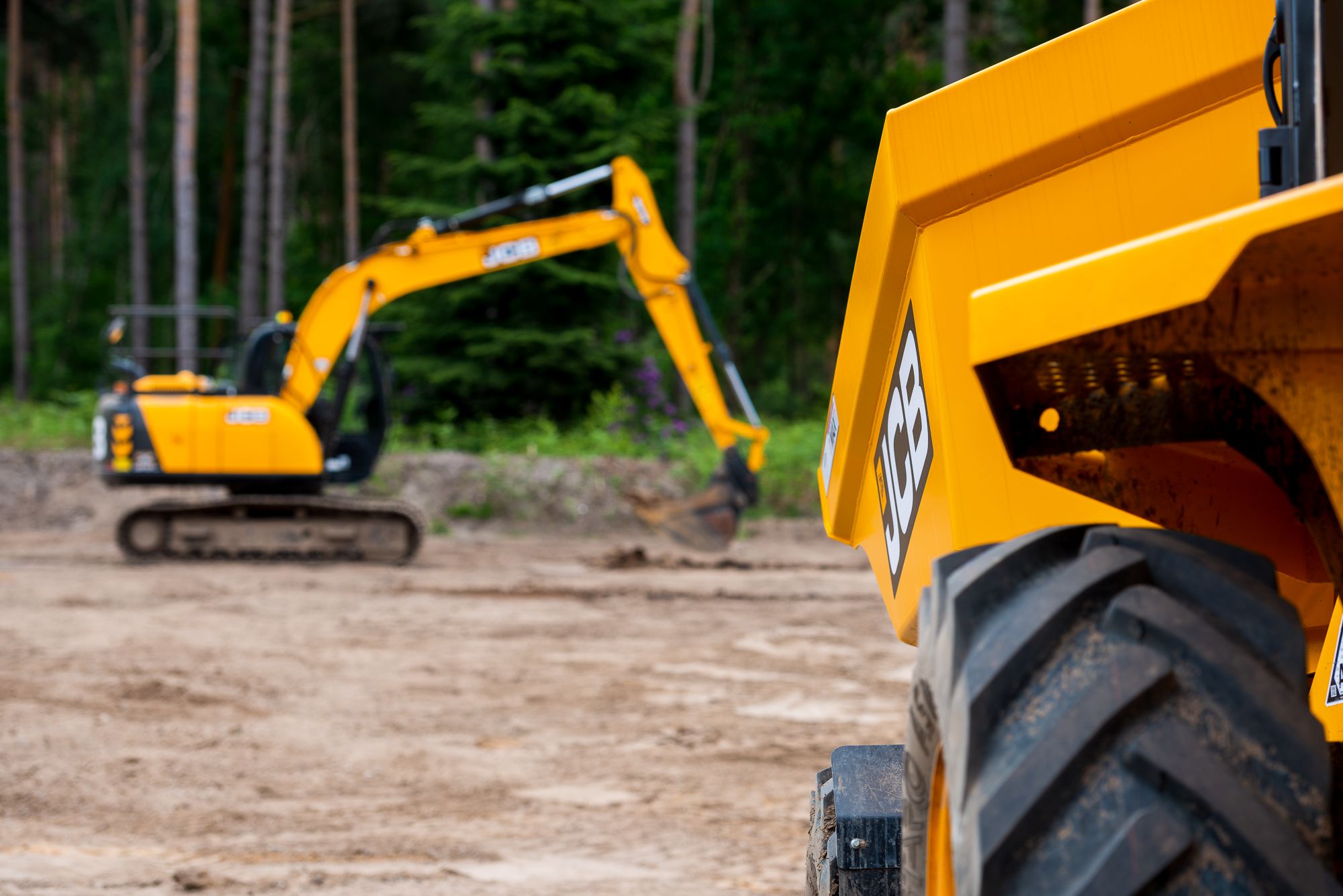
We will explore some of the most commonly asked questions regarding getting certified to safely use plant and machinery and provide you with knowledge and support surrounding plant cards schemes and options for those interested in a career operating plant machinery.
“There are a number of common questions around what requirements and certification are needed to operate plant machinery in the UK. These can vary between the different sub-types of machinery, but it is important to understand what exactly it is you need to know or have before being able to operate heavy machinery.”
In the UK, the minimum age to operate potentially dangerous equipment generally depends on the type of equipment and the specific regulations surrounding it.
Forklifts and Other Industrial Vehicles – The minimum age to operate a forklift or other heavy machinery is 18 years old. This is because these machines can be dangerous and operating them typically requires specific training.
Construction Equipment (E.g Cranes, Bulldozers, Diggers) – For most construction equipment, the operator must be 18 years old and should have received Classroom Courses | Haswell Training
Agriculture Equipment – In agriculture, workers must be at least 16 years old to operate certain types of equipment, such as tractors. Training is required to ensure the operators safety and competence.
Power Tools and Other Handheld Equipment – For tools like chainsaws, lawnmowers and similar equipment, the legal minimum age for operating them is generally 16 years old in the workplace. However, proper training and risk assessment are still required.
Employers also have a duty to ensure that anyone using potentially dangerous equipment has the necessary training, skills, and knowledge. It is a legal requirement to take appropriate steps to protect the safety of the workers.
Essentially no, however a lot of employers and Principal contractors require the workers on their sites to have cards and certificates to prove competency.
Operators of excavators are required to undergo formal training and achieve certification through recognised bodies. Two of the most common certifications are the CPCS (Construction Plant Competence Scheme) card or the NPORS (National Plant Operators Registration Scheme). These prove that you have been trained and competent to operate an excavator safely. There are dedicated https://www.haswelltraining.co.uk/courses/excavator-180-360-above-below for those looking to obtain their certification.
Minimum Age – You must be at least 18 years old to operate heavy machinery like an excavator
While a license is not required by law, employers are legally obligated to ensure that workers operating excavators are properly trained and competent. This includes having the necessary skills to operate the machinery safely.
Operators must be trained in Health and Safety practices related to using excavators. This includes understanding the risks involved and how to use machinery in a way that minimises those risks.
Definition of competency: Competency demonstrates capability to carry out a task safely, efficiently and effectively.
Choose the Right Certification – Identify the type of machinery and card you require for your job role.
Find an Accredited Training Provider – Research training providers to ensure you are receiving high quality training and support.
Complete the Training and Pass the Examination (Theory & Practical) – To obtain certification you will be required to carry out theoretical and practical training and examinations.
Obtain and Maintain Certification – Plant Training Cards can last between 2 and 5 years so it’s important to make sure yours is still in date.
Choosing the right certification for plant machinery in the UK depends on the type of machinery you’re operating and your career goals.
NPORS (National Plant Operators Registration Scheme) -
NPORS is a certification body offering plant machinery training and assessment
Covers a similar range of plant machinery including excavators. Forklifts and other construction plant
NPORS offers an operator’s card that demonstrates your competence. The system is flexible and allows you to obtain cards for individual machines or groups of machines.
NPORS is recognised across the UK and is especially beneficial if you’re working for smaller or independent companies that prefer NPORS. It can sometimes offer more tailored training options.
To gain a NPORS card you need to pass both theory and practical assessment.
CPCS (Construction Plant Competence Scheme) –
CPCS is a recognised and widely used certification scheme for plant operators in the UK.
It covers a wide range of plant equipment, including excavators, forklifts, dumpers, cranes and more
To gain a CPCS Card, you need to pass both theory and practical assessments. The two main types of CPCS Cards are:
Red Card (Trainer Operators) – Valid for 2 years, allowing you to work while gaining experience
Blue Card (Competent Operator) – This is a more permanent card, issued after completing a specified amount of work experience or assessment.
ITSSAR (Independent Training Standards Scheme and Register) –
ITSSAR is a certification body for material handling and plant machinery, including forklifts, cranes and excavators.
Focuses on a wide range of machinery, including mobile cranes, overhead cranes and other construction equipment.
ITSSAR offers a range of operator training and assessment services, with certification that focus more on specific machines.
City & Guilds offers a variety of vocational qualifications, including plant machinery operators.
Covers many types of plant machinery, such as excavators, dumpers and cranes.
City & Guilds qualifications are highly respected and can be useful if you want a more comprehensive education approach, especially if you’re also interested in learning theory and safety protocols alongside practical skills.
For most people working with plant machinery in the UK, NPORS and CPCS are the primary options. whether you are working with smaller businesses or in more specialised sectors. Choose the certification that aligns with the type of work you’re doing, your career goals, and the expectations of your employer or industry.
Plant tickets - NPORS, CPCS, Inhouse, RTITB
Forklifts
Harness training
Inhouse training is designed and developed to meet a company or individuals’ specific requirements and delivered by an organisations trainer who are often experts in their fields.
Choosing the right plant machinery category for certification depends on the type of equipment you’ll be operating your career goals. Plant machinery can be broadly categorised based on its function, and each category has its own training and certification requirements.
Agricultural Tractor
Lifting Operations
Articulated Dump Truck
Telescopic handler
Identify the type of machinery you want to operate
Consider your work environment and career goals
Choose the appropriate certification scheme (CPCS, NPORS etc) for the machinery category
Check employer requirements and job market demand for specific equipment
Ensuring competency through certification (personal learning and development) is essential for safety, compliance and efficiency on construction sites along with allowing you as an individual the opportunity for career progression. If you're looking to enhance your skills and boost your employability, contact us to book on your plant training course

About the author: Georgia Harvey
With over 5 years of business experience and administrative leadership and Head of Administration at Haswell Training. Overseeing the strategic direction and management of day-to-day operations, an expert at managing complex training schedules and ensuring that instructors and delegates have the resources required.
View Georgia Harvey's full bioBook in a free meeting with our wellbeing lead who can visit you and your team in person or via M...
This page aims to provide you with some clarity and options to support you in making that step. ...
Those working in construction are nearly four times more likely to take their own life when compa...
Here we will explore what asbestos is, what a Category A Asbestos Awareness Course entails (https...
Our aim is to share a weekly blog exploring all things Haswell and training related.